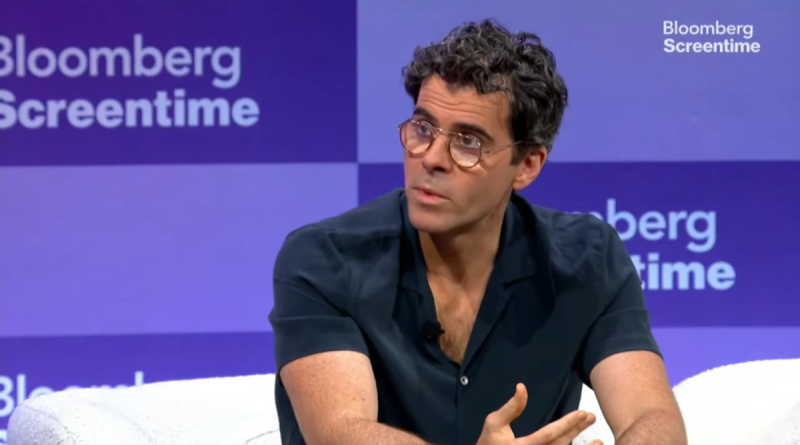Adam Mosseri of Instagram Responds to MrBeast’s AI Worries and Stresses the Importance of Societal Adaptation
Adam Mosseri, the head of Instagram, indicated that AI is set to revolutionize creativity, empowering those who previously lacked resources to produce high-quality content. However, he cautioned that some may misuse this technology for “nefarious purposes,” highlighting the importance of teaching children that the mere existence of a video does not confirm its authenticity.
At the Bloomberg Screentime conference, the Meta executive explored AI’s role in the creator economy. When asked about creator MrBeast’s (Jimmy Donaldson) recent remarks on Threads, expressing that AI-generated videos could threaten creators’ livelihoods and calling it “scary times” for the industry, Mosseri offered a different perspective.
Mosseri contested the idea that most creators would leverage AI to mimic MrBeast’s elaborate sets and complex productions. He believed that AI would instead empower creators to enhance their content and broaden their creative capabilities.
“If we take a step back, a key achievement of the internet was enabling almost anyone to publish by drastically reducing distribution costs to almost nothing,” Mosseri explained. “The potential of generative AI models seems to further eliminate content production costs to nearly zero,” he added, while recognizing the considerable financial, environmental, and human costs involved in the use of AI.
Additionally, the executive noted that much content on major social platforms is already “hybrid,” with creators utilizing AI tools in their workflows without creating entirely synthetic content. For example, creators might use AI for color correction or filters. Looking ahead, Mosseri suggested that the line between real and AI-generated content is likely to blur even more.
“The distinction between organic content and AI-generated content will evolve. I expect to see an increase in hybrid content versus purely synthetic for some time,” he remarked.
As the landscape shifts, Mosseri acknowledged Meta’s responsibility to enhance its methods of identifying AI-generated content. He criticized prior approaches, calling them misguided and akin to a “fool’s errand.” He pointed out that Meta’s initial efforts to label AI-generated content often misidentified authentic content as AI-generated due to the use of AI tools in their creation.
Techcrunch event
San Francisco
|
October 27-29, 2025
Mosseri indicated that the labeling system needs improvements and that Meta should provide further context to help users make informed decisions.
Although he didn’t detail what this additional context might involve, he could have been alluding to Meta’s Community Notes feature, a crowdsourced fact-checking platform launched in the U.S. this year, inspired by X’s model. Rather than depending on third-party fact-checkers, Community Notes allows users with differing views to collaboratively label content for corrections or additional context. It’s likely that Meta is considering the implementation of such a system to flag AI-generated content lacking proper labels.
Rather than placing all responsibility on the platform, Mosseri emphasized the necessity of societal changes.
“My children are young—nine, seven, and five. It’s essential for them to grasp that just because they view a video online, it doesn’t mean it’s a reflection of reality,” he elaborated. “When I was young, videos were likely recordings of real moments,” Mosseri continued.
“They’ll need to think about who is sharing the information and what their motives might be,” he concluded, recognizing that this could be a heavy mental burden for young minds.
In the discussion, Mosseri also touched on various topics regarding Instagram’s future beyond AI, including plans for a dedicated TV app and a renewed focus on Reels and DMs as core features, mirroring shifts in user behavior and the competitive landscape created by TikTok’s evolving ownership in the U.S.
On that topic, he mentioned that competition is generally beneficial, as TikTok’s influence has pushed Instagram to improve its offerings. When it comes to TikTok’s operational shifts, Mosseri stated that predicting their outcomes is challenging, but it seems that the app’s foundational structure will stay largely the same.
“It’s fundamentally the same app, the same ranking system, the same creators you follow—everything is still fairly seamless,” Mosseri commented on the “new” TikTok U.S. operations. “It doesn’t appear to signal a significant change in incentives,” he added.



